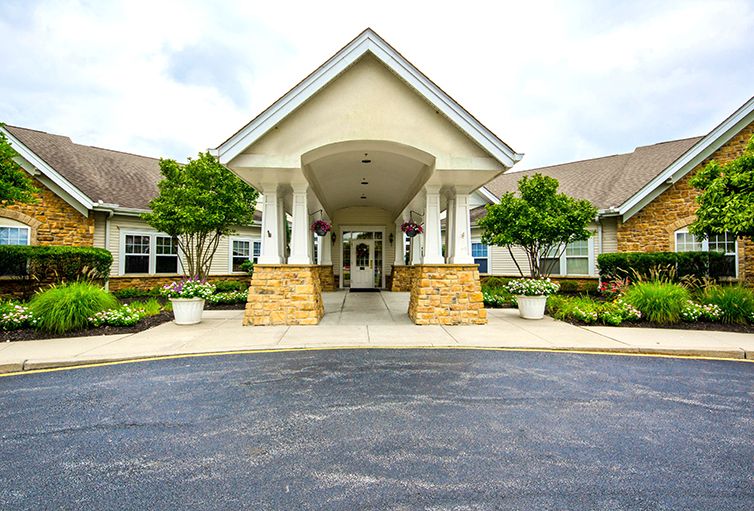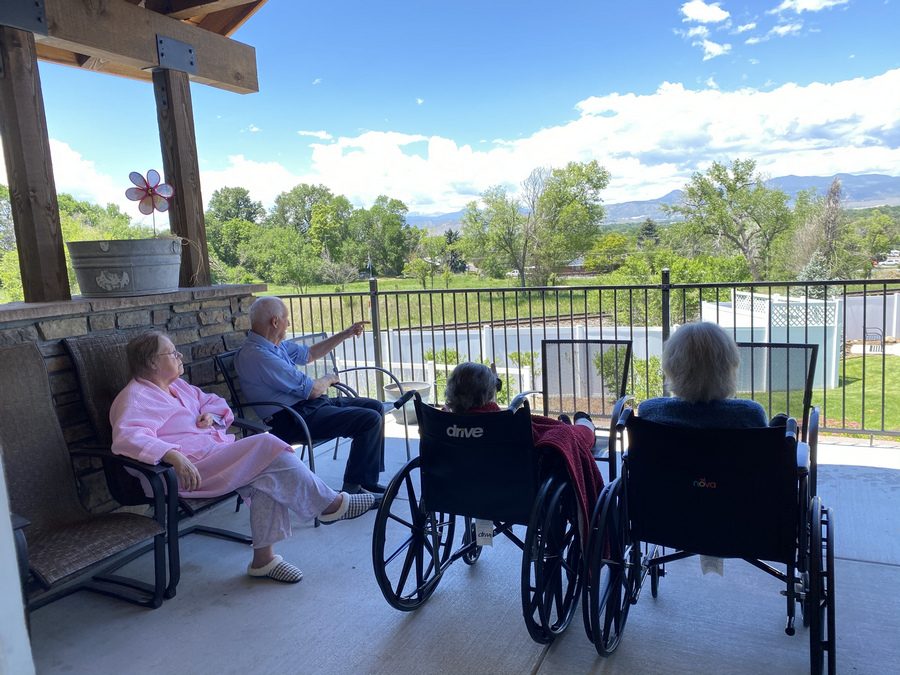Explore Personalized Memory Care Plans That Adapt Over Time
Wiki Article
All Concerning Memory Care Solutions: Why Little Memory Care Residences Are a Terrific Choice
Memory care solutions play a crucial role in supporting people with Alzheimer's and dementia. Tiny memory care homes stand apart for their personalized technique and intimate setup. With reduced staff-to-resident proportions, these homes cultivate stronger connections and tailored treatment. Homeowners take advantage of enhanced social communications and a safe setting. As households check out choices, understanding the one-of-a-kind benefits of small memory treatment homes comes to be important. What factors should be considered when selecting the appropriate home?Comprehending Memory Treatment Services
While lots of might know with basic elderly care choices, recognizing memory treatment services is essential for households encountering the challenges of cognitive decrease. Memory care particularly deals with individuals with problems such as Alzheimer's disease and various other forms of mental deterioration. These solutions give an organized setting that concentrates on enhancing the lifestyle for locals with specialized treatment and support.Memory treatment facilities are developed to ensure safety and security and safety and security, usually featuring secured atmospheres to stop roaming. Educated personnel are available around the clock to assist with day-to-day activities, drug monitoring, and individual care. In addition, memory care programs commonly include cognitive stimulation activities, customized to engage citizens and promote mental health. Households can profit from recognizing these solutions, as they enable notified choices regarding their loved ones' care, making certain that their details requirements and choices are attended to in a compassionate and supportive fashion.The Advantages of Small Memory Treatment Residences
Little memory treatment homes supply unique advantages that can substantially boost the lifestyle for citizens with cognitive problems. One considerable benefit is the intimate environment, which enables tailored communications among team and locals. This smaller sized setting fosters significant connections, minimizing feelings of isolation and stress and anxiety frequently experienced by people with memory issues.Additionally, the reduced staff-to-resident ratio in small memory care homes makes it possible for caretakers to offer more alert supervision and assistance. This technique not only enhances safety however additionally advertises a complacency for the residents.Moreover, little memory care homes can adapt rapidly to the one-of-a-kind needs and preferences of each resident, permitting for a much more homey atmosphere. Such an atmosphere can motivate social involvement and engagement in activities, inevitably enhancing the daily experiences of those dealing with cognitive impairments.Personalized Treatment Plans for Locals
Customized treatment strategies are essential in memory care homes, as they deal with the one-of-a-kind demands and choices of each citizen. These plans begin with comprehensive evaluations carried out by proficient specialists, who assess cognitive capacities, medical history, and personal rate of interests. This customized method warranties that care is not only effective but additionally considerate of each person's dignity and autonomy.Moreover, customized care plans are flexible, enabling adjustments as residents' demands progress over time. This flexibility fosters a feeling of security and knowledge, which is crucial for people living with memory difficulties. Caretakers are trained to apply these plans continually, supplying assistance that lines up with the residents' routines and preferences.Ultimately, individualized care strategies improve the lifestyle for residents by advertising interaction, independence, and health, making them a basic element of memory care services in small memory treatment homes.Creating a Home-Like Atmosphere
Creating a home-like setting is crucial for cultivating comfort and knowledge in memory treatment settings, as it significantly affects locals' psychological well-being. Small memory treatment homes often focus on customized touches, such as cozy shade schemes, family pictures, and acquainted furniture setups, which help residents feel much more comfortable. Incorporating components reminiscent of a standard home, like comfortable space and common locations, urges a feeling of belonging.Moreover, utilizing all-natural light and outside areas can improve the ambience, advertising relaxation and serenity. Personnel play a considerable duty in maintaining this atmosphere by involving with locals in a compassionate way, treating them like family members. Routine activities, such as cooking or horticulture, can also add to a home-like feeling, offering opportunities for citizens to get involved in meaningful experiences. Overall, developing a supporting setting sustains cognitive function and emotional security, making it a vital aspect of memory treatment solutions.
Enhanced Social Interaction and Neighborhood
Enhanced social communication and neighborhood are necessary components of memory care solutions. By cultivating customized social involvement and producing a family-like atmosphere, these solutions promote significant links amongst locals. Team occasions and tasks better urge engagement, helping people really feel much more included and supported.Individualized Social Engagement
While social interaction is essential for overall health, several people with memory disabilities typically struggle to engage meaningfully with others. Customized social engagement in memory care homes addresses this obstacle by creating tailored tasks that accommodate citizens' distinct interests and abilities. By concentrating on specific choices, caretakers can cultivate connections that reverberate deeply with everyone. Tasks such as art therapy, songs sessions, and guided discussions promote cognitive stimulation and emotional expression. In addition, little team settings motivate friendship and enable more intimate communications, improving feelings of belonging. This technique not just fights feelings personalized memory care of seclusion but also empowers citizens to maintain a sense of identity, ultimately adding to improved psychological health and quality of life.Family-like Atmosphere
In a memory treatment setting, cultivating a family-like environment considerably boosts social communication and constructs a sense of neighborhood amongst residents. Smaller sized memory care homes typically prioritize intimate atmospheres, enabling citizens to develop closer links with one another and team member. This nurturing atmosphere promotes trust fund, which is necessary for individuals with memory impairments. Homeowners are most likely to talk and share experiences, developing a helpful network that minimizes feelings of isolation. The familiarity of common rooms and regimens adds to a feeling of belonging, additionally encouraging social interaction (personalized memory care). In such settings, psychological bonds thrive, bring about boosted total well-being and a better of life for locals as they browse their day-to-day experiences togetherGroup Activities and Occasions

Safety And Security and Security Features in Tiny Houses
Lots of little homes developed for memory care integrate essential safety and safety and security attributes to assure the well-being of locals. These homes commonly make use of protected entrance and exit factors to prevent wandering, a typical concern among individuals with memory impairments. Furthermore, monitoring systems and alarm system mechanisms enhance surveillance, ensuring that team can immediately react to any type of unusual activities.Interior formats are customized for security, with lessened dangers such as clutter-free paths and sharp edges. Handrails and non-slip flooring are usually installed to reduce the threat of falls. Personnel are learnt emergency protocols, guaranteeing they are prepared for different situations.Moreover, individualized treatment plans might consist of assessment of private security demands, giving tailored services for every homeowner. Overall, these safety and safety features produce a caring setting where homeowners can thrive while keeping their self-respect and independence.Exactly how to Select the Right Memory Care Home
Exactly how can households guarantee they choose the most appropriate memory treatment home for their liked ones? The decision requires cautious factor to consider of several factors. Initially, families should review the facility's personnel qualifications and training, guaranteeing that caretakers are experienced in managing memory-related conditions. Next, it's crucial to evaluate the home's atmosphere, concentrating on safety functions and whether it cultivates a feeling of area and belonging. Visiting the facility can offer understanding right into day-to-day tasks and the social ambience, which are important for psychological excitement and psychological health. In addition, family members need to ask about the treatment strategies provided, ensuring they are tailored to private requirements. Ultimately, taking into consideration the home's place and availability for family visits can add to a smoother shift. By dealing with these facets, family members can make an educated choice that prioritizes their loved one's comfort and lifestyle in a memory treatment setup.Regularly Asked Questions
What Qualifications Should Staff Members in Memory Treatment Residences Have?
Team participants in memory treatment homes ought to possess appropriate accreditations, experience in mental deterioration treatment, solid communication abilities, and concern. Continuous training in behavior monitoring and therapeutic treatments boosts their ability to support locals successfully.Exactly How Do Memory Care Services Differ From Typical Assisted Living?
Memory treatment services focus especially on individuals with memory problems, providing specialized assistance and structured settings. In contrast, typical assisted living uses general aid with everyday activities, doing not have the tailored technique necessary for those with cognitive challenges.What Types of Activities Are Provided in Memory Care Homes?
Memory care homes commonly use a range of activities designed to engage residents. Common options consist of art therapy, songs sessions, cognitive games, workouts, gardening, and social events, all focused on boosting wellness and cognitive feature.Can Residents Bring Their Own Belongings to Memory Treatment Homes?
Residents can typically bring their own belongings to memory care homes, enabling them to individualize their space - personalized memory care. This method aids develop an acquainted setting, promoting convenience and a sense of identification for the people
How Are Relative Associated With the Care Refine?
Relative play a vital duty in the care process, frequently joining decision-making, participating in treatment conferences, and offering emotional assistance. Their participation fosters a collective setting, enhancing the local's general well-being and top quality of life. While many might be familiar with basic senior treatment choices, recognizing memory care services is crucial for family members dealing with the challenges of cognitive decrease. These services give an organized environment that concentrates on enhancing the top quality of life for citizens with specialized care and support.Memory treatment facilities are developed to ensure safety and security, usually featuring safeguarded atmospheres to protect against straying. Individualized treatment strategies are essential in memory care homes, as they cater to the distinct demands and preferences of each citizen. Team members in memory treatment homes need to possess relevant qualifications, experience in dementia treatment, solid interaction abilities, and concern. Memory treatment solutions focus particularly on individuals with memory problems, giving specific assistance and organized settings.Report this wiki page